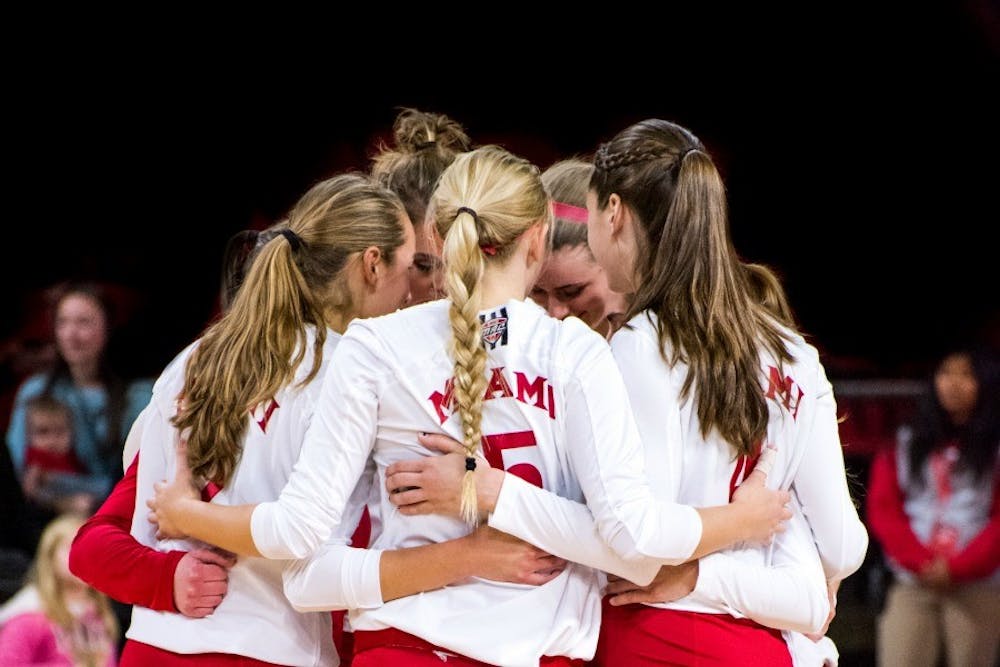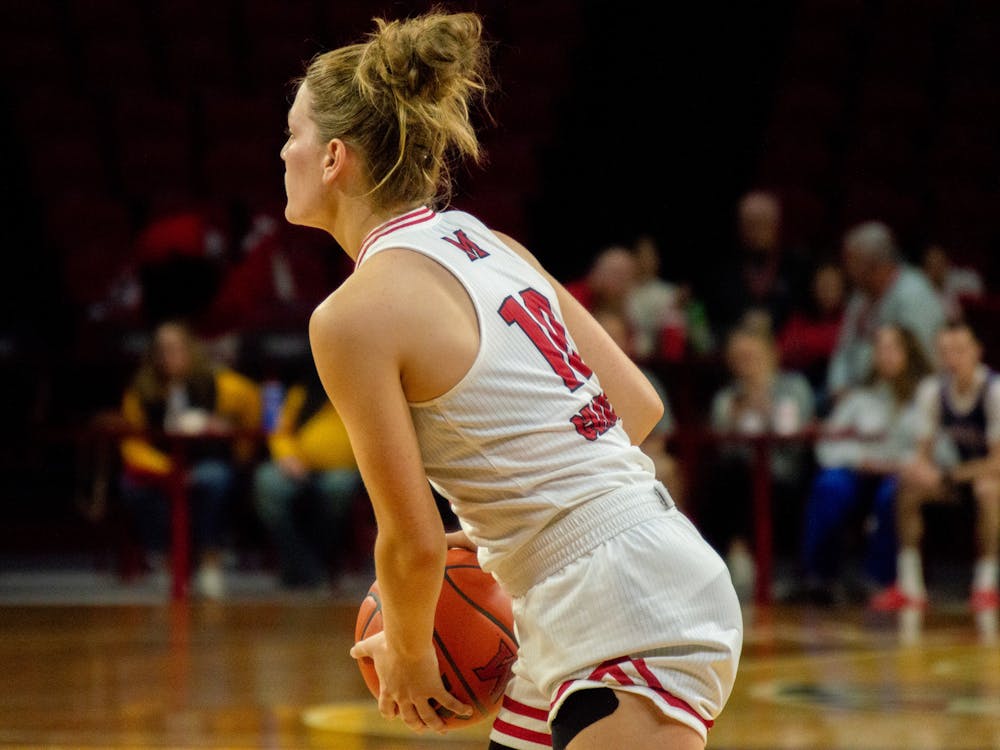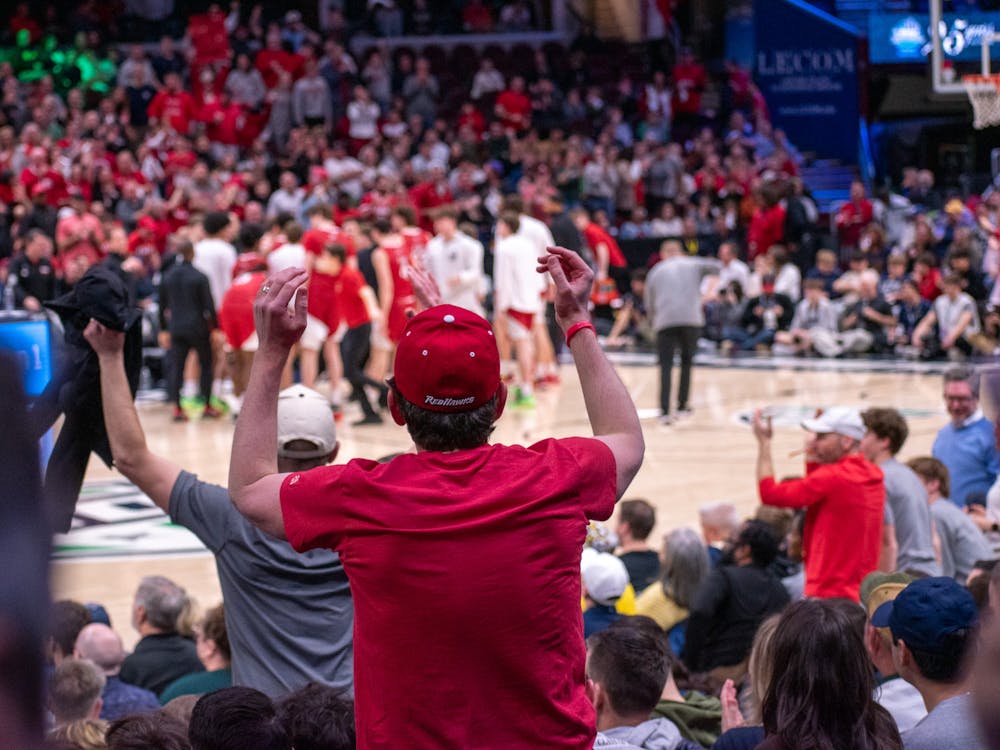The headline on Miami University’s athletics website read, “Miami Volleyball Team Prepares for Four Matches This Week.”
The date was Sept. 10, 2001.
Following the 9/11 terrorist attacks the next morning, the RedHawks didn’t play for 11 days. Miami axed all four games that week, and those memories came flooding back to Carolyn Condit last month.
In 40 years as a collegiate volleyball head coach, it’s the longest string of cancellations she can remember.
Until now.
On Aug. 8, she and her team lost their entire season, as the Mid-American Conference (MAC) scratched fall sports and announced it will attempt to play them in the spring due to the coronavirus pandemic.
“This is really centered around the student-athlete for their health and safety, no matter the sport,” Miami athletic director David Sayler said during a Zoom press conference. “It’s just the right decision for us to make, and it’s grounded in the core values of what our conference has been about for as long as I’ve been a part of it and around it, which is prioritizing the student-athlete’s well-being.”
Condit saw the move coming. She had been meeting with Sayler about plans for the fall once every week or two throughout the summer.
“My feelings, as a fall sport coach, is that it would be outstanding to play in the fall,” Condit said. “But I also felt that there were going to be some risks, and what none of us wanted to happen is to get the season started and then have it stopped and never started again, and have disappointment like so many of our student-athletes around the country did last March.”
Now, Sayler, Condit and administrators around the country have a lot of questions to answer.
How will the postponement influence schedules? Will fans be allowed to attend games in the spring? Will it disrupt players’ strength-and-conditioning routines? How will the athletic department budget be affected? Will any players drop out of their programs?
But the main query: Is holding fall and spring sports at the same time next semester even possible?
Enjoy what you're reading?
Signup for our newsletter
“I personally think it’s very viable,” Sayler said. “I actually think it has the potential to be better for our fans than what this fall would’ve looked like, even if fall had happened.”
Sayler cited the chance for more spectators to catch games in person as one advantage for the spring. If that is the case, it could help Miami’s athletic department make up for some of the lost revenue of a fan-less fall. He also said the MAC is working with ESPN to broadcast football games in the spring.
At the very least, Sayler wants to crown a MAC champion in each sport.
“I think (competing in the spring could work),” Condit said. “The difference will be that we most likely will not play any non-conference teams. And that’s OK. And I don’t know if there will be fans. That’s something Miami would have to figure out. We’re fine to play just with ourselves and our opponent if we can keep the kids safe. I think it’s going to be very possible.”
Condit hopes the NCAA allows her team to treat the next couple months as a de facto spring. The RedHawks would receive eight hours of team activities a week, with four of those being designated for practices. She actually sees the benefits of the setup because most student-athletes have not been able to train as they usually do since March.
“I think it’s a blessing,” Condit said. “There are a lot of silver linings in bad situations, and we’ll just keep looking for those. I think my team is resilient, and they've been winners because they can move past those things. But this is one of the biggest challenges of their young lives, that’s for sure.”
Right now, she’s relying on Zoom, like the rest of the world, to connect with her players.
As for Sayler, he’s gearing up for the most hectic season of sports he’s ever experienced.
“My plan is, for my staff, we’re just going to have a really busy spring, running a lot of different events,” Sayler said. “They’re going to be all times of the day and all days of the week … It’ll actually be kind of exciting if we can get to that point.”
But he and Condit both know to never take a full schedule for granted.




